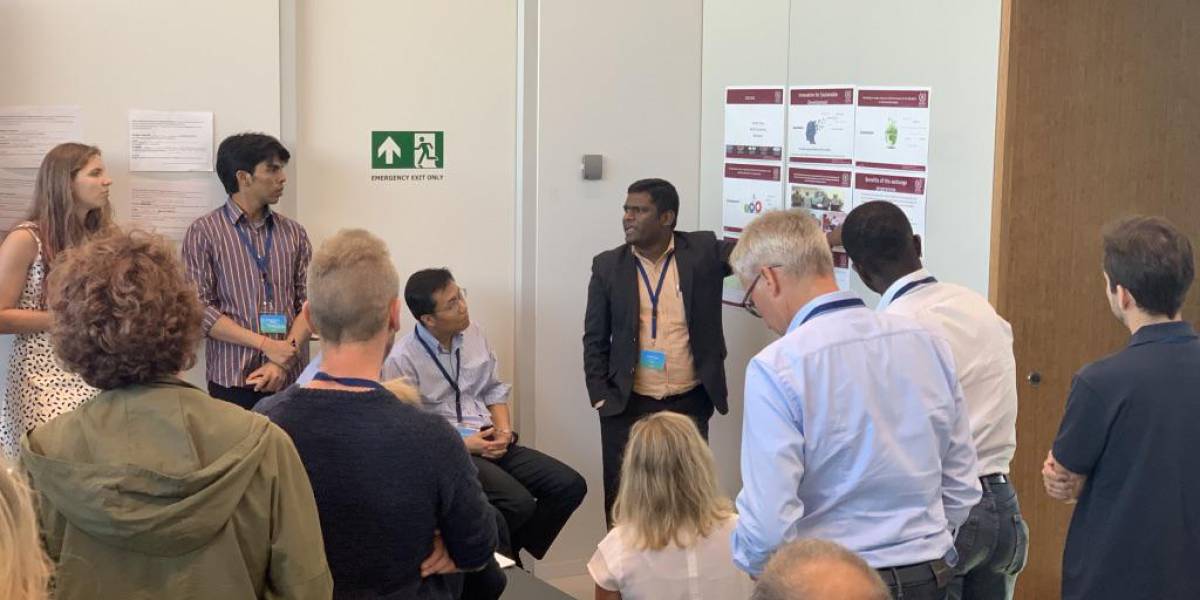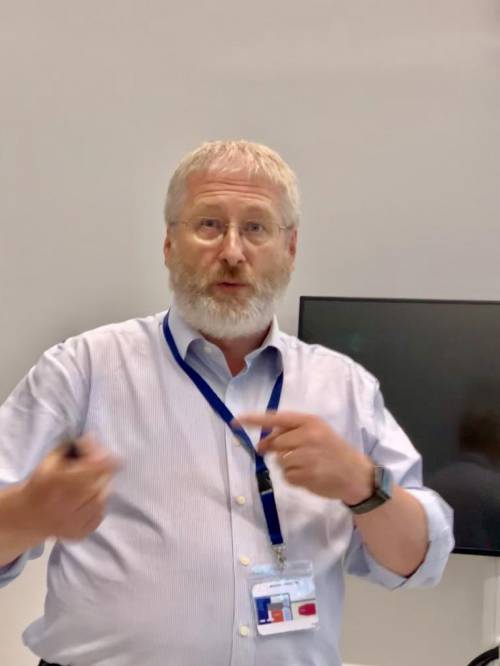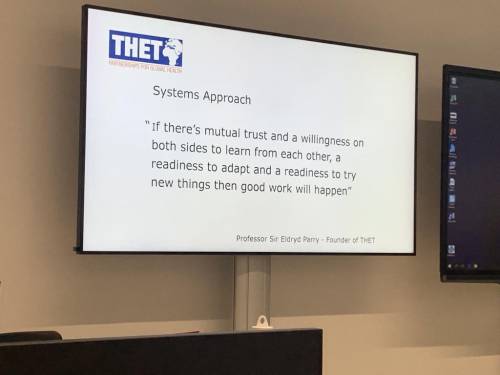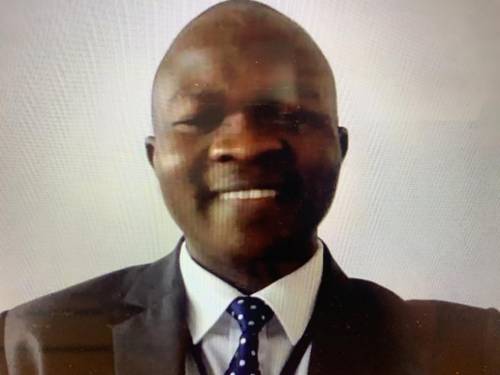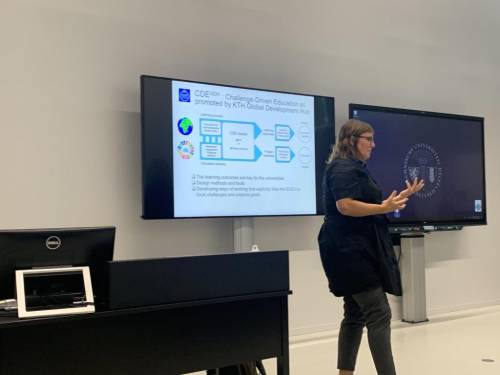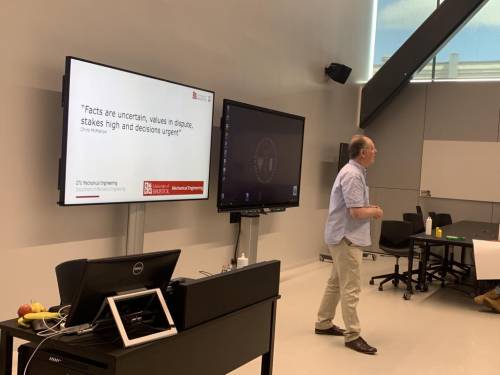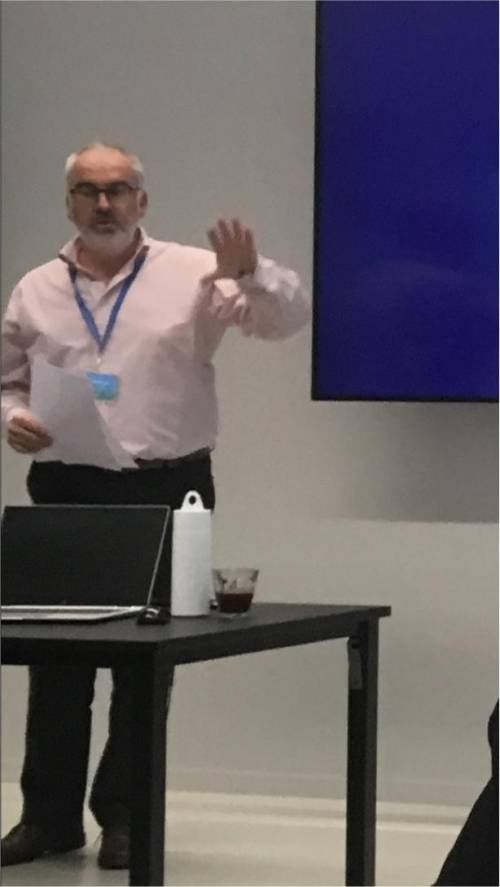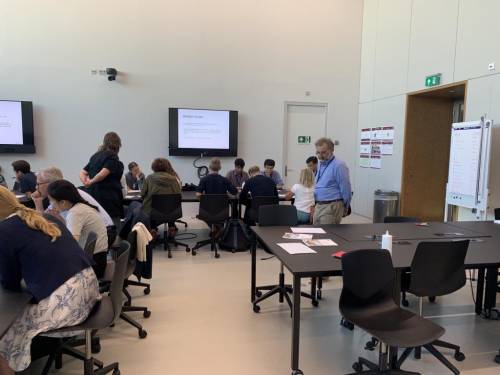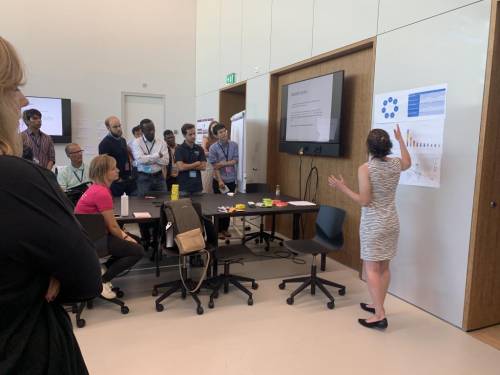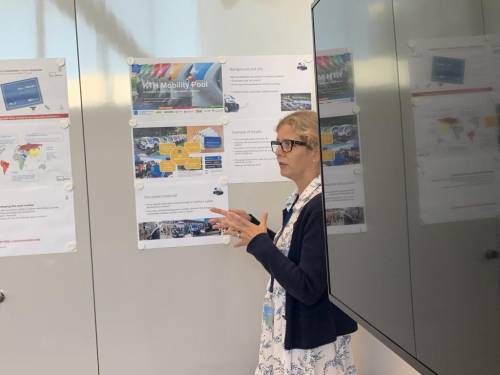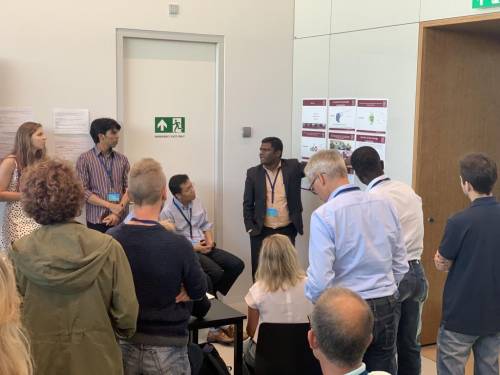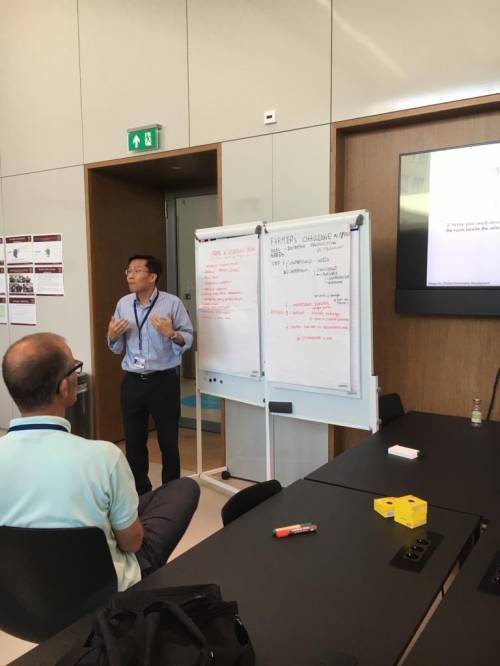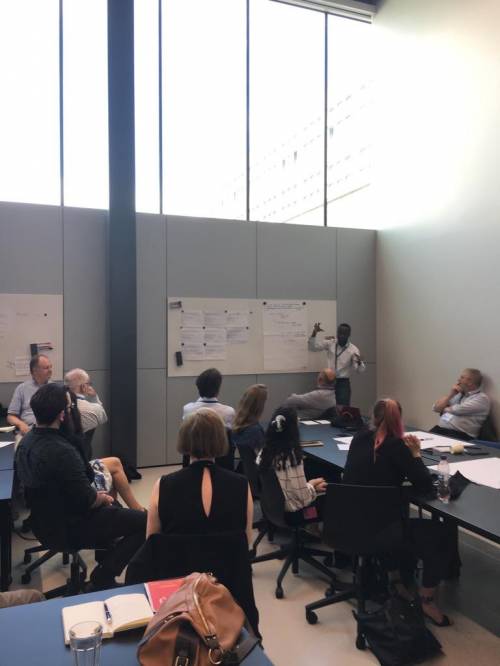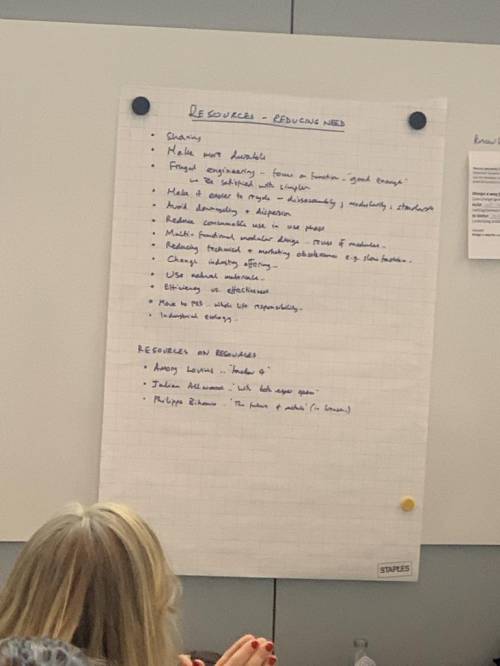ICED2019 Workshop on Design for Global Sustainable Development
Summary Report
Workshop participants conducted break-out sessions in four groups and presented their ideas on challenges and action items. The workshop leaders prepared a summary of these ideas.
Workshop Minutes
Prepared by Melissa Greene.
Design for Global Sustainable Development Workshop
International Conference on Engineering Design (ICED19)
Monday, August 05, 2019
Meeting Minutes
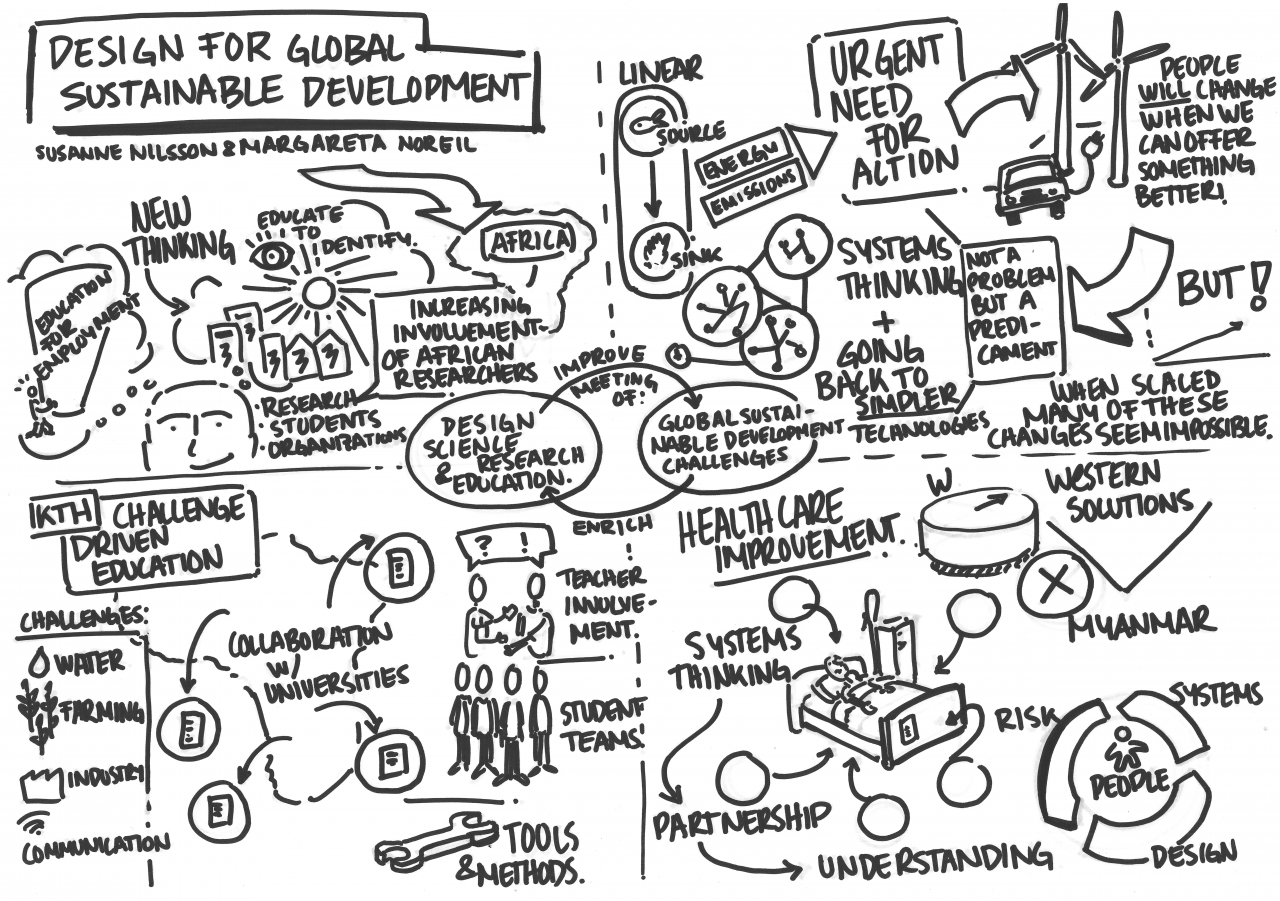
INTRODUCTION: PANOS PAPALAMBROS
- The motivation for holding the workshop: increasing interest in design for sustainable development as it happens in developing countries
- Specific interest in Africa because Design Society has almost no African members
- Design Society is very interested in sustainable design and Africa presents the biggest opportunity and challenge over the next decade. Design Society needs to be more involved, learn what’s happening, and help colleagues in Africa
- New website for initiative (a subset of DS website)
Initiative: AFRICA DESIGN
- Society will serve as a way to build a community/network of people interested in designing for sustainable development in Africa; connect teachers and students; researchers; etc.
- Connecting teachers and students: students/young people should take charge with addressing UN Sustainable Development Goals
- There is a need to know who’s doing what: some collaborations exist between universities within and outside of Africa, but they are limited (not much interaction within Africa) and often 1:1
- GOAL: To understand what are the needs that pertain to African countries and beyond related to design for sustainable development; and determine what we should do to address them
- RESEARCH QUESTIONS
- How can design science research and education improve current ways of meeting sustainability challenges in global development?
- In what way can design science research and education be enriched through engaging in global sustainable development?
PANELIST PRESENTATIONS
SPEAKER 1
Gabriel Dinda (Strathmore University, Kenya)
Responsible Design: A Game of Hope for Africa
- What do you think when you think about Africa? Animals, wildlife, civil wars? Or the rising sun: representing the potential for Africa to leapfrog development using sustainable development goals?
- Africa is the “morning sun just rising” the decisions we make in the morning determine the evening usage of the sun
- In Africa: challenges with employment for young people. 70% of young people in Africa are not engaged in any meaningful employment, which opens them up to opportunities that make them vulnerable
- Initiative at Strathmore to teach employability skills, but skills for identifying and handling policy challenges that come their way (e.g., green energy) would be more useful. This is the future and we should invest in it!
- Necessary to incorporate into organizations and invest in the people
SPEAKER 2
Chris McMahon (University of Bristol, UK)
- The big picture: “facts are uncertain, values in dispute, stakes high and decisions urgent (Funtowicz and Ravetz)”
- Science works when the problems are well defined; these [sustainable development] challenges are existential “post-normal science”
- Our economic activities involve material flows from sources to sinks. Energy is the lifeblood of these flows! Many materials stay in use for years, but we have constraints at each end of the flows (e.g., climate change, soil quality, waste, etc.)
- URGENT NEED FOR ACTION! But, incommensurate world views:
- E.g., Ecocentrism → Technocentrism
Deep ecology/Communalism → Accommodation/Cornucopian
Extreme preservation/Resource preservation → Resource
conservationist/Resource exploitative
- People will change when we can offer something better! But it’s not so easy…
- E.g., to replace UK car fleet with electric vehicles requires two times the total annual world cobalt production, the entire world production of neodymium, three-quarters of the world’s lithium production...and half the world’s copper production during 2018
- Going “low tech”:
- Can’t keep going on with high tech because resource issues prevent it (due to the need for rare metals)
- Reference:
- The Low Tech Age: Towards a Technically Sustainable Civilization (Philippe Bihouix)
- EMAIL FOR TRANSLATION OF BOOK
- Principles of simple technologies:
- Question the need
- Design and manufacture for true sustainability
- Orient knowledge towards an economy of resource use
- Search for the balance between performance and conviviality
- De-localize without losing the good effects of scale
- De-automate services
- Know how to remain modest
To conclude:
- This is not a conventional “problem to solve,” but rather a predicament to face
- Cornucopian and dystopian ideas are not helpful. We need to experiment and explore to find a middle ground
- Adopt precautionary principles
- Critically examine conventional wisdom and be prepared to counter more radical departures from business as usual
- Design can contribute to any approach but we should be more than technicians: design thinking, together with systems, lifecycle, and new social-economic thinking, can provide tools for the post-normal world
SPEAKER 3
Susanne Nilsson (KTH, Sweden)
- Grand challenges of our time are expressed by the UN Sustainable Development Goals
- Shared by all countries
- Universities have a role in initiating
- KTH Global Development Hub: A scalable platform for engaging in global development engineering through cross-cultural and cross-disciplinary education
- Challenge driven education that integrates challenges related to UNSDGs into regular curricula at US, EU, and African partner universities (typically, traditional teaching/education in Africa and elsewhere)
- Wide range of openendedness and complexity
SPEAKER 4
John Clarkson (University of Cambridge, UK)
Developing a Systems Approach for Healthcare in LMIC
- Systems thinking/systems engineering in healthcare is not a global approach
- GOAL: to work with the health and care professions to explore how engineers can add to current understanding and practice
- Systems Vee can be distilled into four elements systems, people, design, and risk and a set of questions about those elements
- Radical thinking:
- Engineers think about people
- Iteration before implementation
- Design is an exploratory process
- Risk management is a proactive process
- Thinking changes practice, the process helps
- Common sense is not common
- Issue of TRANSLATING systems thinking/systems engineering assumptions, concepts, values, practices in order to globalize
- Challenges: language and constructs, culture and context, politics and power, etc.
- Instead of asking questions, get people to TELL STORIES
- Ask questions about the people who tell stories
- TRUE PARTNERSHIP required (learning from each other)
BREAKOUT SESSION 1: Problems/Challenges
- Codesign/holism with stakeholders
- Understanding needs, requirements, etc.
- Developing an understanding for a holistic approach
- Education
- Designing a way for environmentally-oriented people to train for action
- Matching skills with opportunities
- Connecting professors/expats; improving communication
- Designing versatile products
- Evaluating interventions
- Integrating research teams with government/policymakers
- Self-empowerment of local communities
- Knowledge and resource sharing
- Integrating conflicting objectives
- Behavior change
- Specific products/issues
- Health
- Waste treatment
- Cooking
- Farming
- Mobility
BREAKOUT SESSION 2: Critical Actions
- Form codesign teams to explore/understand needs, constraints, contexts, etc.
- Educate children/future generations through curriculum development and teacher training
- Narrow problem scope
- Engage stakeholders
- Reduce needs for resources and production by sharing, optimizing, and integrating
- Promote reuse/recycle
- Engage social and behavioral scientists for mind/behavior change
- Incentivize sustainable behavior
- Redefine education to enable change
- Broaden the idea of education to include society at large (not just “students”)
- “University+”
- “Measure” sustainability

